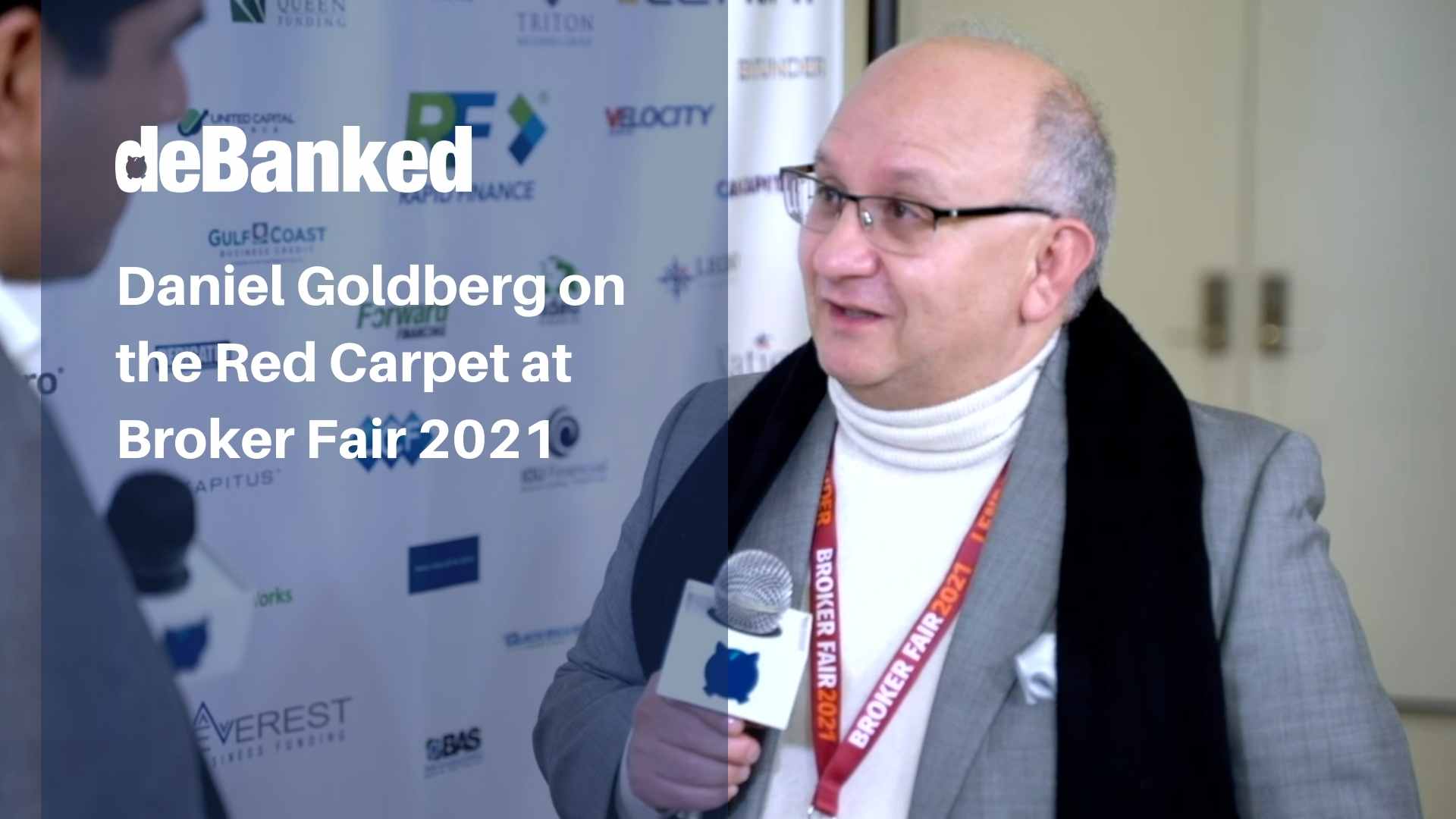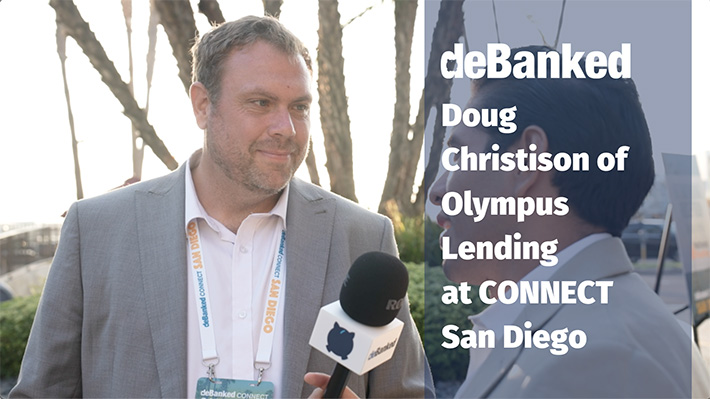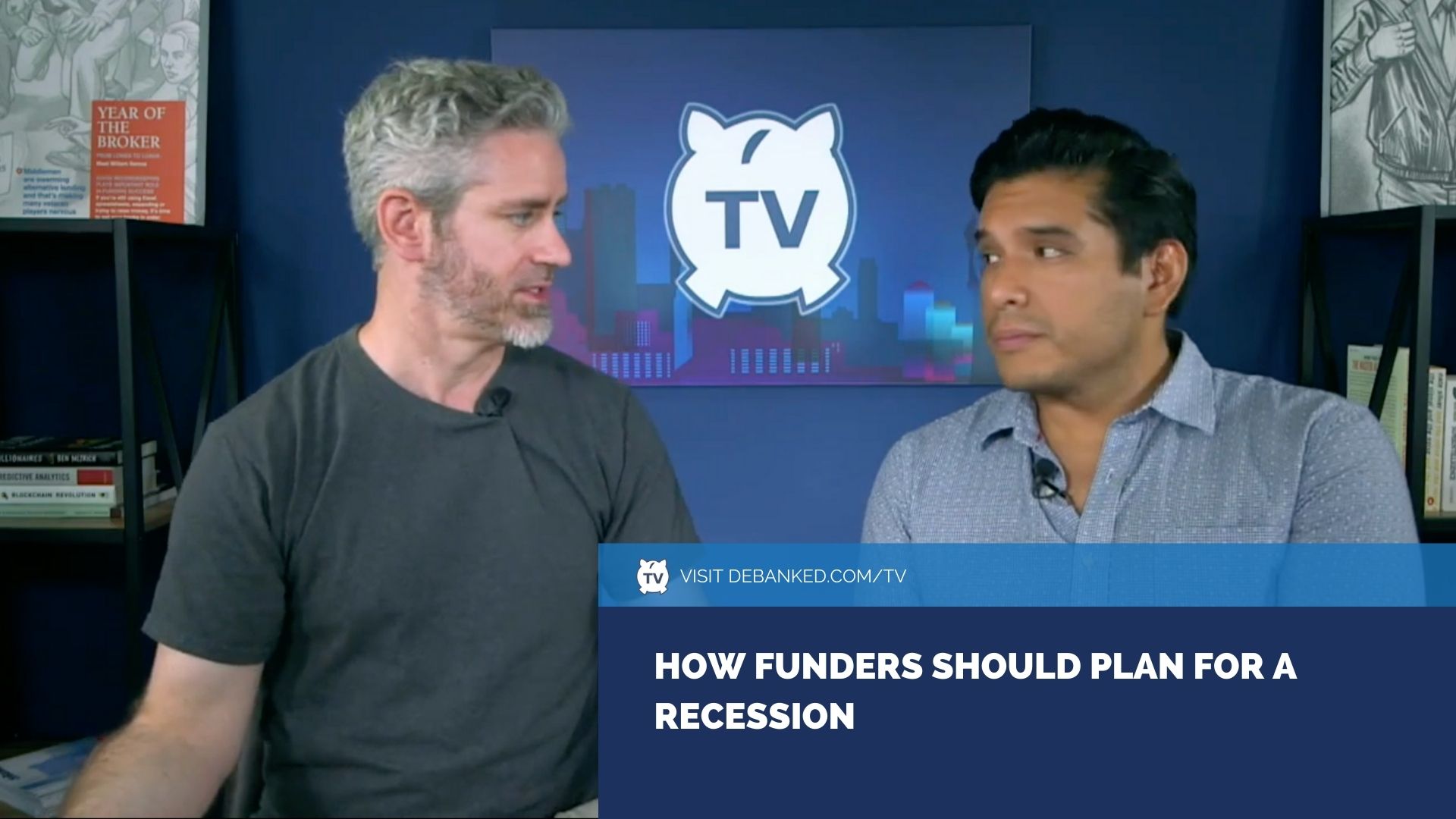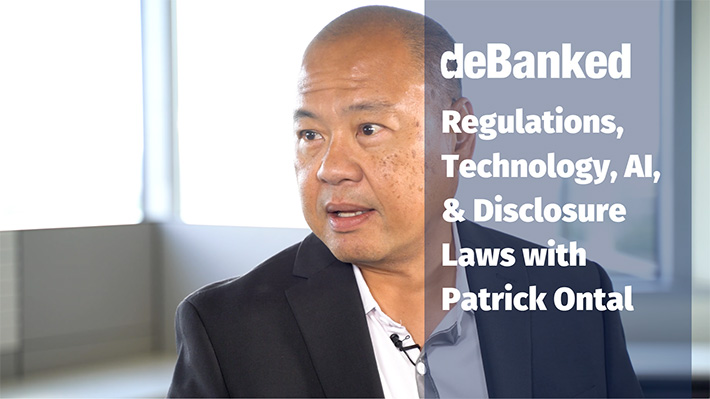Johny Fernandez is a reporter for deBanked TV
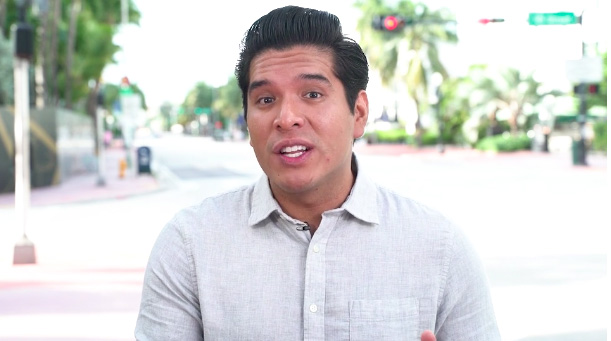 | 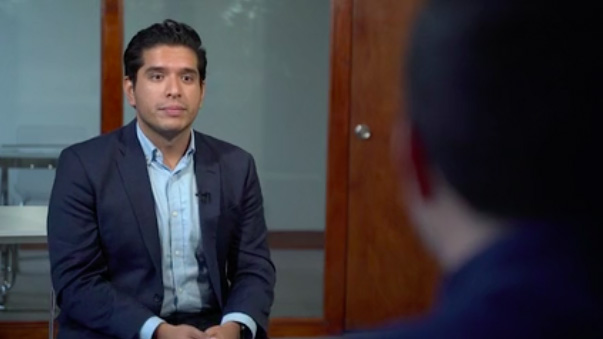 | 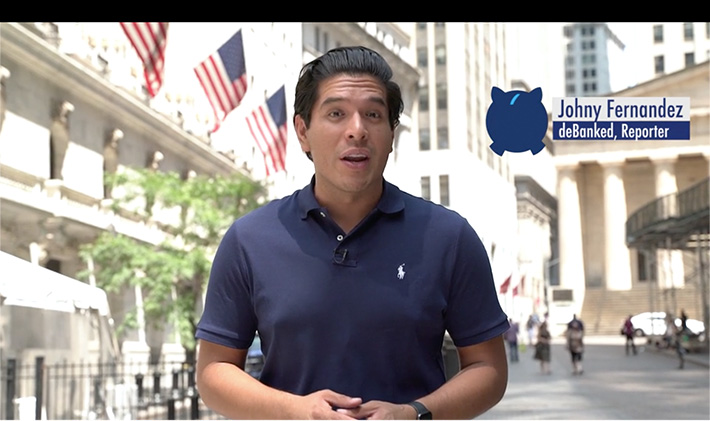 |
Related Videos
Daniel Goldberg on the Red Carpet - Goldberg Hedgefund | Doug Christison at deBanked San Diego 2023 |
How Funders Should Plan for a Recession | Patrick Ontal on the Industry and More |
Stories
Welcome to deBanked CONNECT MIAMI
March 23, 2022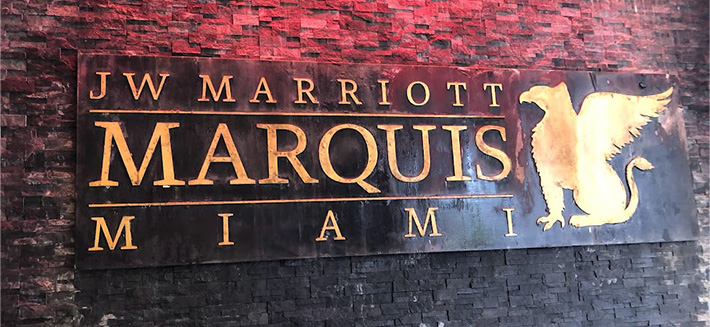
For those that are registered and in town for deBanked CONNECT MIAMI, allow me to welcome you. Here’s what’s going on:
March 23: Start connecting with other attendees via the event mobile app.
March 23 (10:00 AM): Golf at Miami Shores Country Club for those that registered in advance.
March 24 (1:00 PM): Check-in/sponsor showcase opens/event begins at the JW Marriott Marquis in Downtown Miami
March 24 (2:30 PM): Opening Remarks
March 24 (2:40 PM): Panels/speakers kick off
March 24 (6:00 PM): Cocktail reception begins and continues until 8pm
March 24 (8:30 PM+): Private & public after-parties not affiliated with the event
The March 24th full agenda can be viewed here.
What else is happening
- deBanked TV will be streaming LIVE from the event. Feel free to approach the crew to potentially be interviewed by deBanked TV host Johny Fernandez for the chance to be heard by everyone watching from home or their office. If you’re one of the people not here, goto debanked.com/tv in the afternoon of March 24th.
- Meet the cast of Equipping The Dream, the industry’s first reality show that follows four aspiring brokers at a week-long sales training. Episode 1 can be viewed HERE.
- Network in BOTH of the sponsor showcase rooms.
- Kosher food will be available. Just ask!
Got questions? Email events@debanked.com. Responses will be very slow on event day. You can also flag down a deBanked CONNECT team member in person.

“Equipping The Dream” Premieres on deBanked TV
February 15, 2022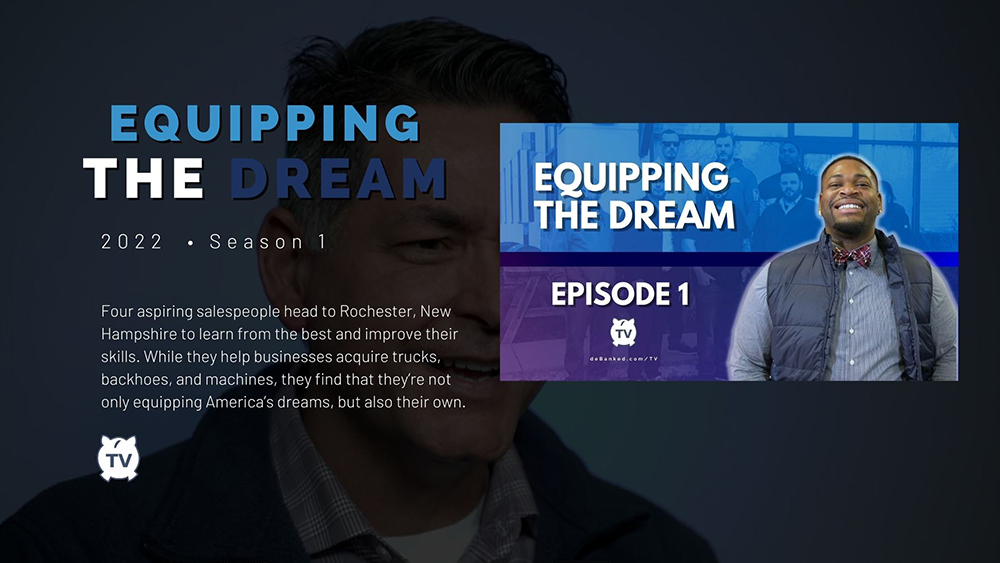
On February 15, deBanked TV released the first episode of a new one-of-a-kind show.
Equipping The Dream, a six-episode series that wrapped up filming late last year, follows the journey of four aspiring equipment finance brokers as they get put through a rigorous training regimen at a real-life sales office in Rochester, New Hampshire.
Episodes will be released on Tuesdays and Thursdays. Episode 2 airs on February 17th. Watch free on deBanked.com/tv/
Executive Producer: Sean Murray
Cast: Josh Feinberg, Will Murphy, Angela Thompson, Thomas Long, Juan Carlos Marcano, RJ Rochelle, Brian Perry, Steve Feinberg, Evan Sowa, Johny Fernandez.
Copyright: © deBanked 2022.
Broker Fair is HERE
December 5, 2021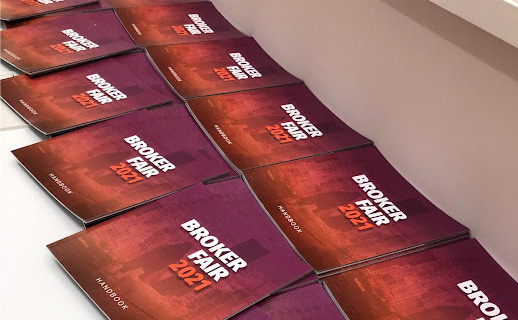 Monday kicks off Broker Fair 2021 at Convene at Brookfield Place in lower Manhattan. The venue can be found on the 2nd floor of 225 Liberty Street. You must have a ticket and proof of vaccination to enter. The event is sold out.
Monday kicks off Broker Fair 2021 at Convene at Brookfield Place in lower Manhattan. The venue can be found on the 2nd floor of 225 Liberty Street. You must have a ticket and proof of vaccination to enter. The event is sold out.
deBanked TV will be streaming live from inside the venue where host Johny Fernandez will be talking to attendees throughout the day. You can tune in to watch live on debanked.tv starting in the morning on December 6th.
If you see the below entrance on the 2nd floor of the building on December 6th, you’re at the right place:
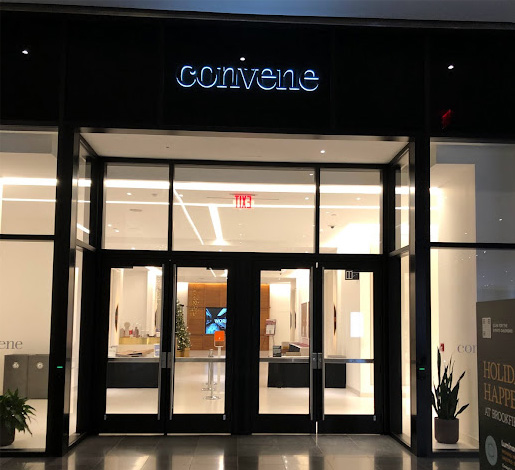
Miami May Become the New Small Business Funding Hub
September 22, 2021 At least two funding companies have told deBanked off the record that they plan on opening offices in the Miami area in the new year.
At least two funding companies have told deBanked off the record that they plan on opening offices in the Miami area in the new year.
It seems that South Florida, particularly Miami, is where the small business finance industry may be moving for a fresh start, and with that potentially ditching the suit and tie for flip flops and shades in the process. The social, political, and economical elements of South Florida make it a well-suited landing spot for an industry that is looking to evolve with the shifting environment.
One catalyst to the potential industry-wide migration could be the S5470B regulations that go into effect in New York on January 1. The new law will require funding companies to navigate a complex system of disclosure to any interested small business finance prospect.
There are other benefits to Florida, of course.
Jordan Fein, CEO of Greenbox Capital, whose operated his business out of Miami since 2012, prides his choice of locale on all the factors that are seemingly pushing those in New York down south. “We do not have state and city tax, we are near water and have a better lifestyle than most companies in New York, or in other areas where it gets very cold in the winter,” he said.
Fein stressed the relaxing Miami lifestyle as the reason why he has only called South Florida home to his company. “The lifestyle here is second to none. Being near the ocean, it makes it much more enjoyable to be able to go to the beach or on a boat to relax and take a load off from the busy work week. New York and other large cities seem to add more stress from [New York’s] super-fast-paced style.”
Despite his love for Miami, Fein respects New York’s ability to churn out top tier employees in the industry. “The talent pool is still among the best,” Fein said, when asked if there were any reasons he or others would ever consider maintaining a connection with the area should an exodus occur.
Fein isn’t worried about the incoming competition should offices relocate to his area. “Location of a funding company has no bearing on competition,” he said. “We all do business over the internet and the competition of funding is dependent on new companies entering the space, not on their location.”
If it is true that the industry is moving to a fully digital competitive space, the idea of a warm weather city with great tax benefits, comparatively low costs of living, and a low-stress atmosphere may be a no-brainer when it comes to finding the funding industry a much needed new home. Not to mention, the mayor of Miami also really wants small business finance companies to relocate there.
In a taped episode of deBanked TV, Miami Mayor Francis Suarez told reporter Johny Fernandez that he really wants small business lenders and MCA companies to set up shop in his city.
Watch: Miami Mayor Francis Suarez talks with deBanked in March 2021“We definitely want to make sure that small business, merchants, and lenders are able to capitalize small businesses in our community,” he said. “Miami’s a very thriving small business community. One of the things that people have criticized us for is we don’t have those big massive companies. We’re actually really built on small businesses. So for us, having fluidity of capital, liquidity of capital, access to capital are enormous things in terms of scaling. And I think that’s one of the things that we’re seeing change now is because of technologies. We’re getting a tremendous amount of access to capital that we weren’t getting before.”
SEAA: 1,000+ Attendees In Atlanta Next year, Thanks deBanked
June 8, 2021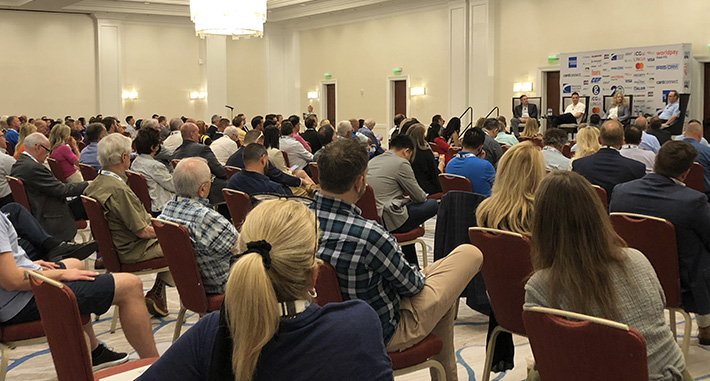 1,000 people registered at the Southeast Acquirers Association 20th-anniversary conference Bonita Springs Florida: a smash hit in part due to the hybrid presentation model and deBanked’s video coverage, the executive board members of SEAA said. Treasurer John McCormick said next year in Atlanta would be even bigger, following a hybrid in-person venue with recordings and live streams that would pack over 1,000 participants in the show.
1,000 people registered at the Southeast Acquirers Association 20th-anniversary conference Bonita Springs Florida: a smash hit in part due to the hybrid presentation model and deBanked’s video coverage, the executive board members of SEAA said. Treasurer John McCormick said next year in Atlanta would be even bigger, following a hybrid in-person venue with recordings and live streams that would pack over 1,000 participants in the show.
“To have our biggest show on the West Coast of Florida was really gratifying,” he said. “We registered over 1,000 and were just shy of that number with check-ins. I think we’ll [surpass that] next year in Atlanta, which will be a great celebration for our board and advisory committee.”
McCormick helped co-found the organization along with Audrey Blackmon and Judy Foster in 2001. In March, he talked with deBanked, describing the difficult choice to go back in person full capacity, a decision that turned into a major win. Derek Vowels, director of partner solutions at Aliaswire and SEAA board member, thanked Cypress Planning Group for the venue support and deBanked for helping produce the in-person and online hybrid model.
Everyone rose to the occasion, Vowels told Green Sheet, thanking Sean Murray, deBanked chief editor, publisher, and deBanked reporter Johny Fernandez, who conducted live interviews at the conference. “Attendees can view every breakout session, presentation, and popular CBD panel on the app and web portal for the rest of the calendar year,” he said. “Going forward, hybrid events that combine face-to-face meetings with recordings will be the norm.”
Alongside live streaming from the show floor on May 25th from 9 am to after 6 pm, Sean and Johny pored through interviews with industry experts.
Sam Schapiro, leader of funding application platform Fundomate, talked with Johny about the resilience of the human species, American small businesses, and funding slowdown.
Shawn Smith, the CEO of Dedicated Commercial Recovery, met with Sean to talk about the new post-covid environment in the B2B space and Florida golf.
Aviv Baron, the founder of Direct Payment Group, talked with Sean about changes in merchant spending, payment processing, cannabis, and drop shipping trends in the past year.
And automated accounts receivable fintech CEO Garima Shah talked with Johny about her firm Biller Genie, and the world opening for business after a year of covid.
deBanked is looking forward to the new year as covid restrictions lift and events come back in person.
Revisiting Miami in 2020
October 23, 2020deBanked reporter Johny Fernandez flew down to Miami in September to find out how the South Florida non-bank small business finance industry has been getting along since covid. The following are some excerpts of interviews:
Jordan Fein, CEO of Greenbox Capital
“I’d be lying to you if I told you that, well it was fine for us. It wasn’t fine for anybody. We got hit pretty hard. I’d say that anywhere between 20 – 24% of our Canadian and about 25 – 28% of our US market got wiped out. And we shut down funding from mid-March to the end of April and we started funding again in early May. We’ve just increasingly been bringing back people from furlough and getting our legs back under us and now I think we’re really cooking right now.”
Craig Hecker, CEO of Bitty Advance
“So I think [the covid crisis] taught us a lot. And I think that when you face challenges like this pandemic, it really pushes you to reinvent yourself or reinvent certain parts of your business that you never thought were possible. And one of those things that we’ve learned is that we have a lot of folks that prefer to work at home, they’re actually more efficient working from home, they’re not in any hurry to come back into the office setting. Of course, we have certain employees that their jobs require them to kind of be with other employees, etc. but I think it’s really forced us to adapt, and to just embrace the new normal.”
Larry Bassuk, President of Idea Financial
“I think that we’ve been consistent in our risk management approach from the beginning. When we first surveyed the alternative lending space to see where we thought the best opportunity was for Idea Financial, we decided to focus on the higher credit quality segment of the market. our credit standards reflect that, our risk management principles reflect that, and quite frankly, our product reflects that. So during the covid crisis, when it was very acute in March, April, May, we got to see in real time, how our risk mitigation principles were functioning. It was a real test of all the theory that crisis, we got to see things shake out, and we got to see things being proven. A lot of assumptions that we were very strict on, really helped us manage the crisis. Going forward, we see that we’re going to be doubling down on those risk management principles, doubling down on how we underwrite and keeping a very close watch on how the businesses perform pre-covid, during covid, and then hopefully post-covid.”
You can watch the full 12 minute, 35 second TV episode deBanked produced here.
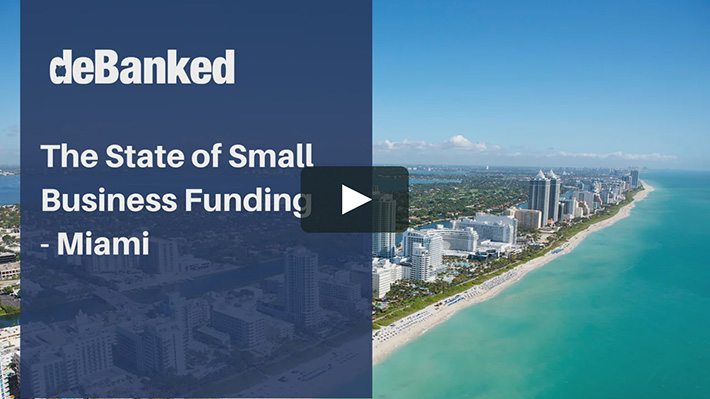
deBanked Visits Local Commercial Finance Brokerage – Horizon Funding Group
October 22, 2020deBanked reporter Johny Fernandez visited the storefront office of Horizon Funding Group, a commercial finance brokerage located in Brooklyn. The company is owned by brothers James and John Celifarco.
NYC Taxi Drivers Protest, deBanked Reporter Goes For a Ride
September 17, 2020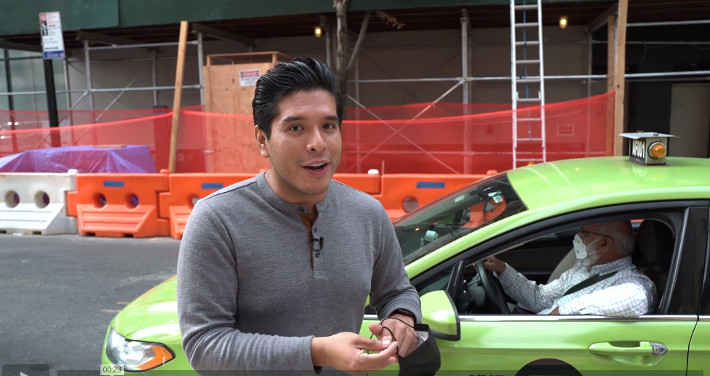 On Thursday, NYC taxi drivers shut down the Brooklyn Bridge to formally protest the financing costs tied to their taxi medallions, the certificate that allows them to operate in the five boroughs. Tensions over “Medallion loans” have been bubbling over since last year when it was revealed that many borrowers had signed a Confession of Judgment to obtain their loan, which basically waived their right to settle any disputes with their lender in court should they be unable to make the payments. Since then, COVID has completely devastated an already suffering industry…
On Thursday, NYC taxi drivers shut down the Brooklyn Bridge to formally protest the financing costs tied to their taxi medallions, the certificate that allows them to operate in the five boroughs. Tensions over “Medallion loans” have been bubbling over since last year when it was revealed that many borrowers had signed a Confession of Judgment to obtain their loan, which basically waived their right to settle any disputes with their lender in court should they be unable to make the payments. Since then, COVID has completely devastated an already suffering industry…
“Before it was good, we could make $100-$150 a day,” said Mohammad Ashref, a local Brooklyn taxi driver in a video interview with deBanked reporter Johny Fernandez. “Now it’s very hard to survive, we work very hard to make 60, 70, or $80 a day, but what can I do? I have to make a living. We have no other choice.”
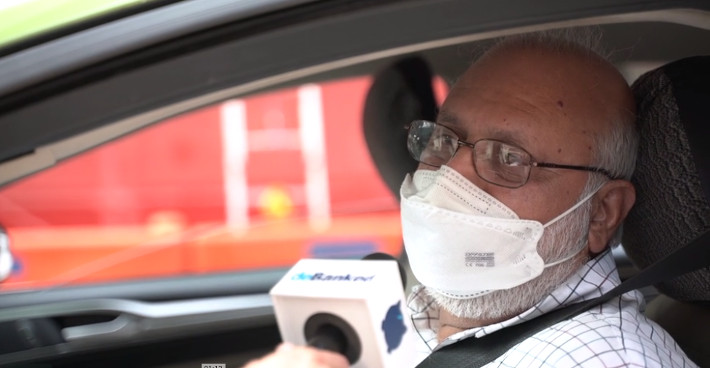 Ashref technically drives a green cab, different from the yellow cabs that were protesting on the bridge in that they’re not permitted to accept street-hails throughout most of Manhattan. Green taxis also operate through a permit rather than a medallion, a still relatively new concept that was first rolled out in 2013 to facilitate ride-hailing in the outer boroughs where yellow cabs did not spend much time.
Ashref technically drives a green cab, different from the yellow cabs that were protesting on the bridge in that they’re not permitted to accept street-hails throughout most of Manhattan. Green taxis also operate through a permit rather than a medallion, a still relatively new concept that was first rolled out in 2013 to facilitate ride-hailing in the outer boroughs where yellow cabs did not spend much time.
In the interview with Fernandez, Ashref pointed out that the success of the taxi business is intertwined with the restaurant industry. Many riders in the boroughs depend on cabs to take them to restaurants or night clubs, but with the complete ban on indoor dining still in effect within city limits, that need has mostly dried up.
According to the NYC Taxi & Limousine Commission, yellow and green cabs were making as little as $314 and $210 a week respectively during the peak period of the shutdowns. In a 40 hour week, these amount to a fraction of the $15/hour local minimum wage and that’s even before factoring in driver costs like a vehicle lease, loan payments, insurance, and more.
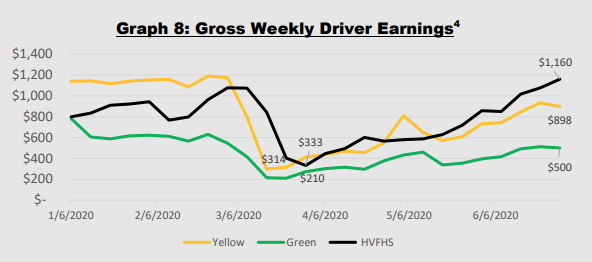
deBanked has been exploring several areas of the New York City economy over the last few months. For instance in July, reporter Johny Fernandez looked into how the pandemic was affecting a street performer in Times Square that was dressed as Batman.
“The business now is slow,” Batman said. “There’s so few people at this moment […] At this moment I see people scared, they don’t want pictures…”
Batman, like others in New York City, was hopeful that a return to normalcy was just around the corner.


